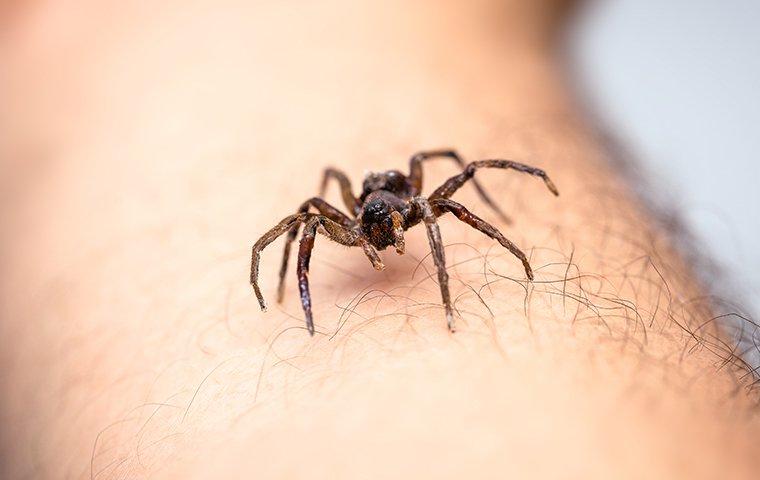While most spiders you encounter are relatively harmless, even the small chance of a highly venomous bite should be enough to make you want to keep all spiders out of your home. Learning how to prevent overall pest populations is the first step, and every property owner should learn about the factors that attract spiders and the bugs they hunt.

Common House Spiders In Portland
The term “house spider” is used to describe all manner of invasive species that are drawn to human homes and businesses. Many of them start as outdoor pests and then move inside in search of food — not the crumbs that accumulate but the insects that are drawn in by them. And, while it’s true that the vast majority of spiders are pretty harmless to people, all of them have venom and fangs that they will use to bite if they feel threatened. Even nuisance spiders — those that don’t pose larger health risks — can create annoying webs that litter your yard and around your property. All spiders are also signs of larger pest problems because they are only drawn to your property in search of other pests to eat.
Dangerous Spiders In Portland
Just because most spiders are pretty timid and harmless doesn’t mean that there aren’t dangerous spiders around. In Portland, the two most common highly venomous spiders are black widows and brown recluses, which have venom capable of putting people in the hospital. Here’s how you can tell them apart from other spiders, as well as what signs you should look out for following a bite.
- Markings: Both venomous spiders have unique markings that set them apart. Black widows have scarlet hourglass shapes or dots on their bellies, while brown recluses are often called “fiddler spiders” for the violin-shaped pattern on their backs.
- Habitat: Both kinds of spiders tend to prefer wooded environments, like debris piles or root hollows. This is why you should store wood and other debris neatly stacked and away from your home.
- Symptoms: If you notice fever, nausea, or dizziness following a spider bite, seek medical attention right away. Only anti-venom can counteract the effects of a black widow or brown recluse bite.
Spider Prevention Tips For Your Portland Home
To avoid the dangerous species of spiders, you have to protect against all kinds of them, well as the insect prey they hunt. If you have spiders in your home, you likely have a larger insect problem. It’s this food chain that highlights how overall pest control is comprehensive, not reactive. Here are some common-sense steps for you to take around your home:
- Landscaping: Part of protecting your home from pests is smartly planning your yard. Overgrown plants or soils that are too close to your exterior walls will provide overlap between a pest’s usual domain and your own.
- Food storage: Spiders won’t scavenge for scraps around your home, but they will be attracted by the other pests that do. Proper food storage (even pet food), and deep cleaning in the areas where crumbs and spills accumulate, are important for prevention.
- Crack sealing: Many pests, even spiders, are small enough to slip through tiny cracks and holes. You should regularly check your exterior walls for needed repairs.
Contact Kanga Pest Control For Comprehensive Pest Protection
Even diligent homeowners can find themselves with pest infestations that attract spiders. That’s why, to truly account for all the ways that pests get inside and grow, you should turn to experts for help. At Kanga Pest Control, our trained technicians can inspect your property inside and out for signs of spiders or pests that attract them to your home. From there, we can come up with solutions that eliminate existing populations or prevent future ones. To make sure that your home never experiences a potentially dangerous spider infestation, turn to Kanga Pest Control today.
